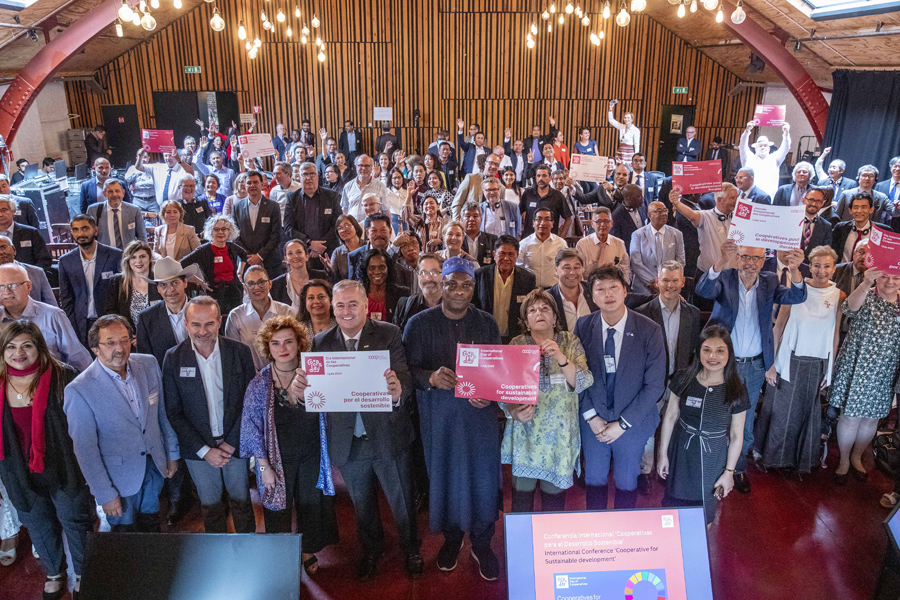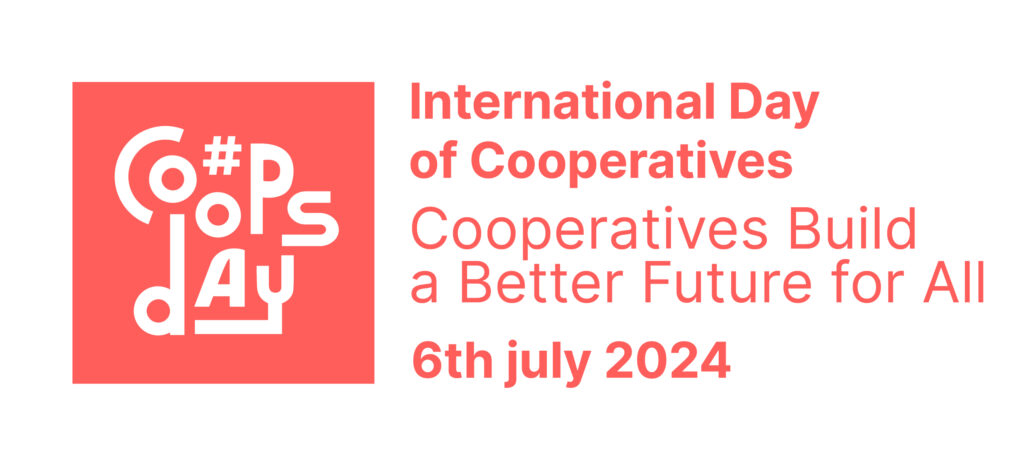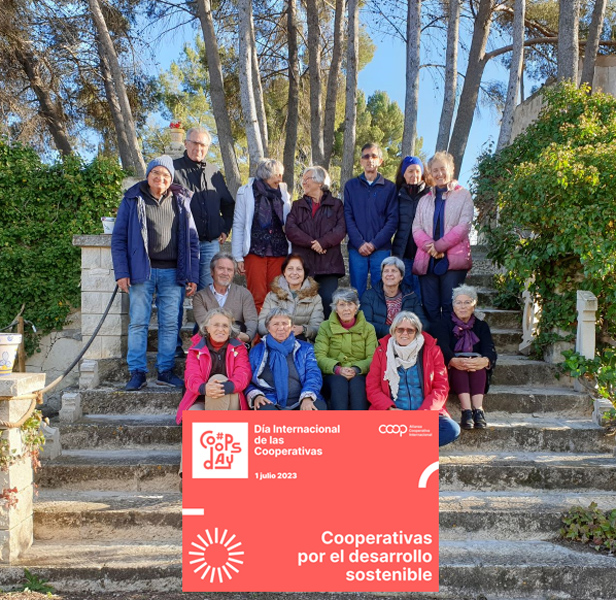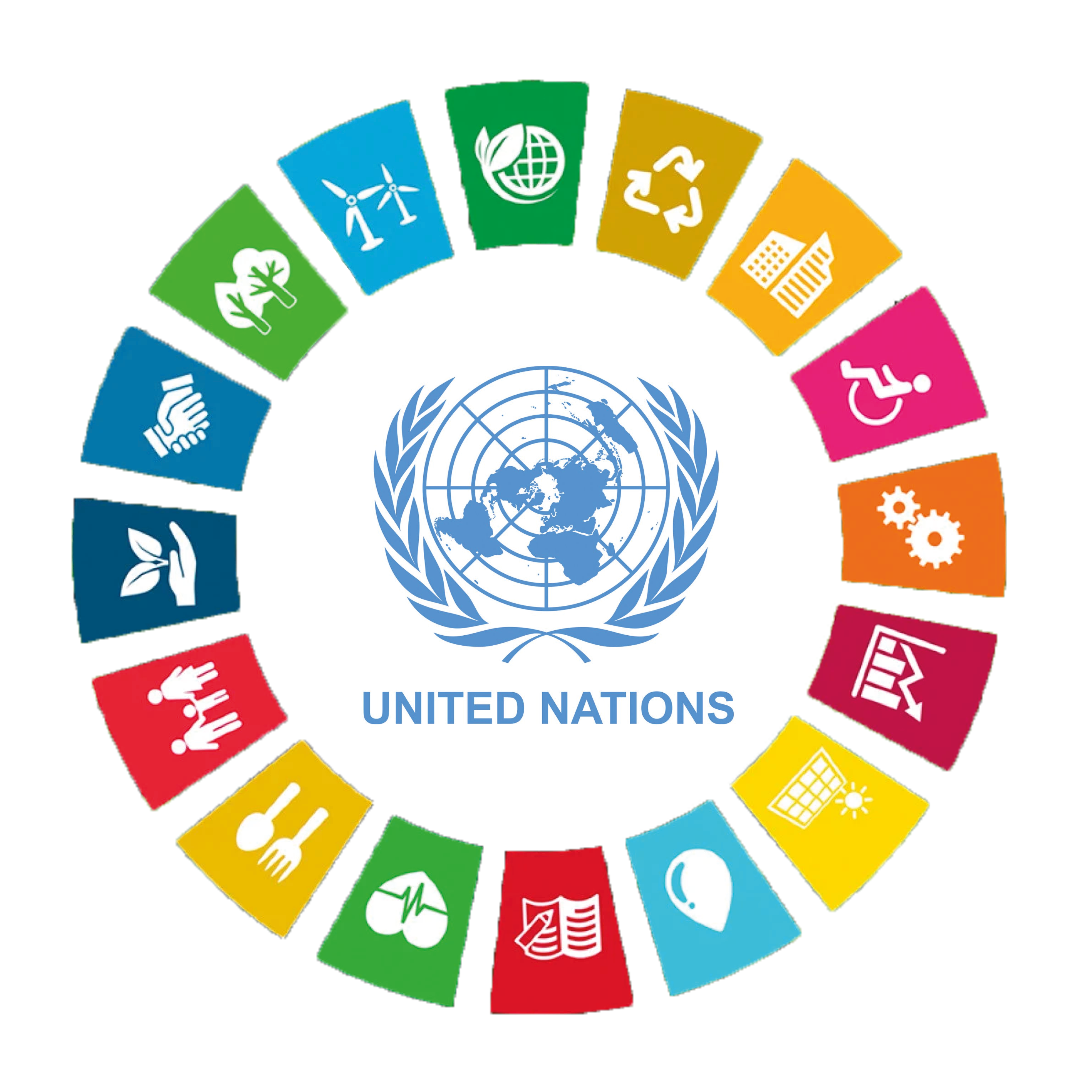Every year, the first Saturday in July marks the celebration of the International Day of Cooperatives. This date often goes unnoticed if you are not part of the sector.
Officially, it has been celebrated since 1995 under the auspices of the United Nations. This year marked the centenary of the International Cooperative Alliance (ICA), which had already been organizing this festivity since 1923.

June 28, 2023 – Brussels, Belgium – COOP’s annual conference. © Pablo Garrigós/ BR&U
The aim is to increase awareness about cooperatives, making this date crucial to showcase their role in creating a better world. Annually, the ICA and the UN, through the Committee for the Promotion and Advancement of Cooperatives (COPAC), set a theme for the celebration. This theme aligns with the virtues offered by this business model, promoting its values and highlighting its importance for sustainable development. The theme for 2024 is: Cooperatives Build a Better Future for All.

What are cooperatives and why are they so important?
Let’s start with the definition expressed by the ICA in the Statement on Cooperative Identity: A cooperative is ‘an autonomous association of persons united voluntarily to meet their common economic, social, and cultural needs and aspirations through jointly owned and democratically controlled enterprise.’
In this model, businesses are owned by their members, who may be customers, employees, or residents. They manage and operate the businesses themselves. There is no distinction in status, so everyone has a stake in the decisions and profits of the enterprise. Everyone works together democratically, interconnected and united by strong bonds of solidarity.
These characteristics enable cooperatives to provide opportunities, fair employment, and equitable remuneration to thousands of people, thereby improving their lives and those of their families. That’s why they have become key partners in achieving the Sustainable Development Goals (SDGs).

They also characterize themselves by being motivated by values centered on human welfare beyond profits. As mentioned by the ILO, these values and principles are internationally agreed upon and guide their actions, aiming to create shared prosperity: self-help, self-responsibility, democracy, equality, equity, solidarity, honesty, openness, social responsibility, and concern for others.
These entities span across all economic sectors, from self-organized recyclers to women improving working conditions. This model has brought basic resources like electricity and water to rural areas, and extended financial services and credit to low-income individuals. Moreover, they have facilitated access to housing, healthcare, and food for elderly and marginalized populations. In this way, the cooperative model has addressed significant market and governmental failures, reaching underserved communities, especially in developing countries. Here lies its importance: addressing needs and making a positive impact on countless lives.
Cooperatives and the SDGs
Due to their members’ commitment to their communities, this model is essential for achieving sustainable long-term development. That’s why the UN recognized cooperatives as the first business group partnering in achieving the SDGs. They were also the first group to endorse these objectives.

To begin with, the cooperative model, unlike the traditional capitalist model, does not seek capital concentration. Instead, it provides a more fair and equitable distribution of wealth. According to the UN, its open membership allows access to wealth creation and thus contributes to poverty eradication. Moreover, not being beholden to shareholders, it delivers social and economic benefits to members and their communities.
On the other hand, this model has proven to be resilient during times of crisis, providing the stability needed to create long-term decent work. This model has lifted thousands of people out of economic hardship and played a crucial role in breaking intergenerational cycles of poverty by providing social protection and food security to those who would otherwise be excluded. Moreover, it has the potential to continue driving inclusive development forward.
Therefore, cooperatives emerge as effective partners in advancing the SDGs. However, according to their own report, these goals have not made sufficient progress, with 50% of them stagnating or regressing by 30%.

Cooperatives Around the World
According to The World Cooperative Monitor (WCM), there are 3 million cooperatives worldwide, whose members account for 12% of the global population. These cooperatives generate jobs and income for 250 million people globally, representing 10% of global employment. Despite this, the cooperative model remains underutilized and relatively unknown.
The latest WCM report lists the 300 largest cooperatives globally, which have combined revenues exceeding $2410 billion. At the top of the list are Groupe Crédit Agricole from France, REWE Group from Germany, and Groupe BPCE, also from France.

2025: The Year of Cooperatives
Just like in 2012, 2025 will see cooperatives worldwide celebrating a special occasion: the United Nations has proclaimed it as the International Year of Cooperatives. This proclamation aims to promote support for cooperatives and raise awareness about their contribution to sustainable, social, and economic development at the local, national, and global levels.
Similarly, these enterprises, driven by collective action, seek governments’ attention to strengthen the business system. They advocate for improvements in legislation and regulations that are more conducive to their establishment and access to financial capital. This is because in today’s world, it is imperative for a business to generate income. Despite all the benefits this model offers to society and its proven track record, its continuity is challenged by the need to generate revenue. Here, the strong trust among its leaders and members, and collaborative efforts to move forward, serve as crucial support amidst potential collapse. Achieving profitability is possible through a balance of benefits and earnings. However, greater government support and encouragement are necessary to foster business growth.
#CoopsDay has certainly paved the way. Now, it’s up to #CoopsYear to achieve these goals and promote the creation of sustainable businesses in every corner of the world. Shifting towards a more collective approach rather than purely economic, one that is more responsible and based on mutual respect. As observed by the UN, “globalization should be guided by a set of values like those of the cooperative movement; otherwise, it creates more inequality and excesses that make it unsustainable.”
You might also be interested in: Sustainable Industries, What is Their Destiny?





